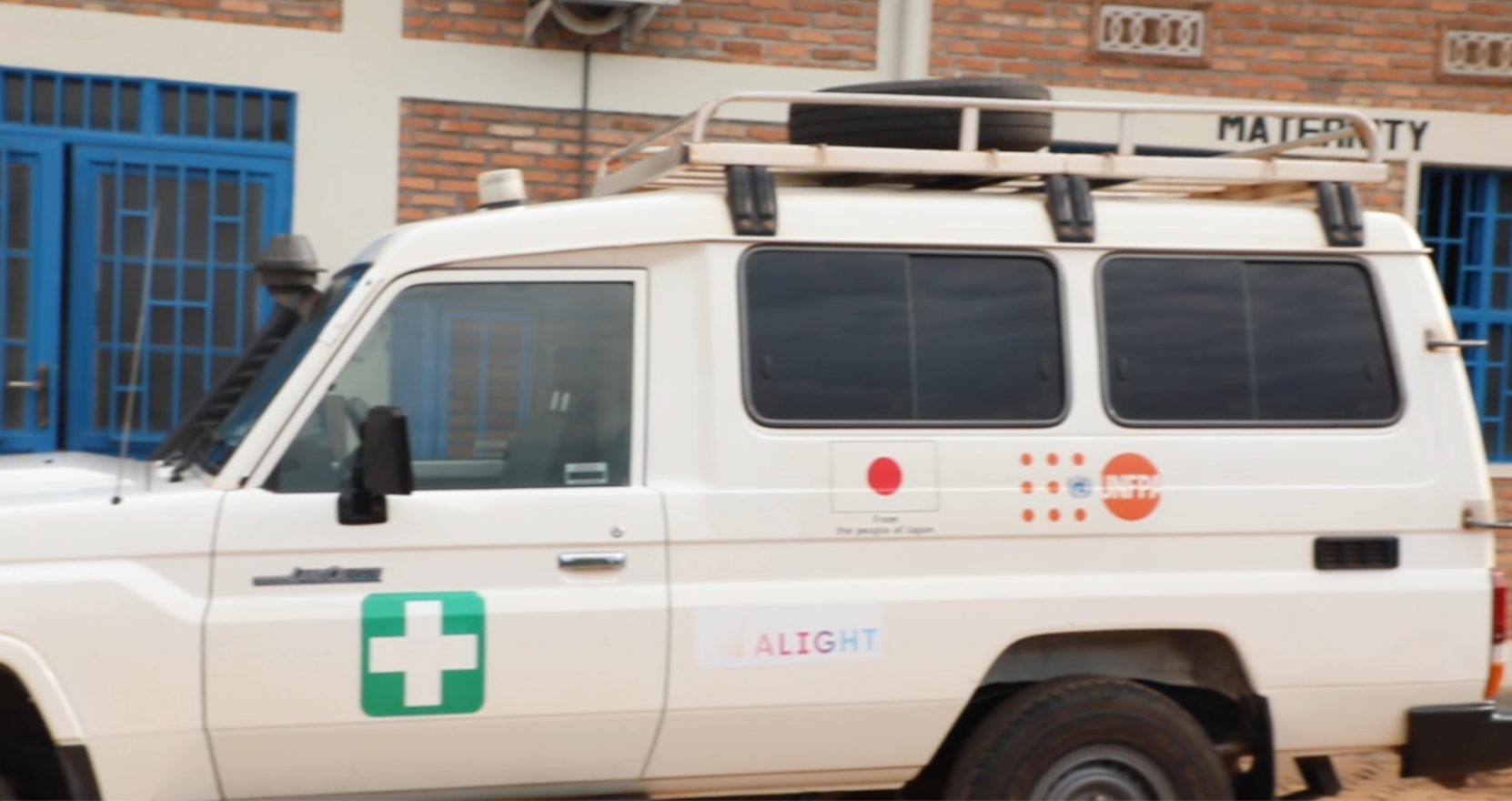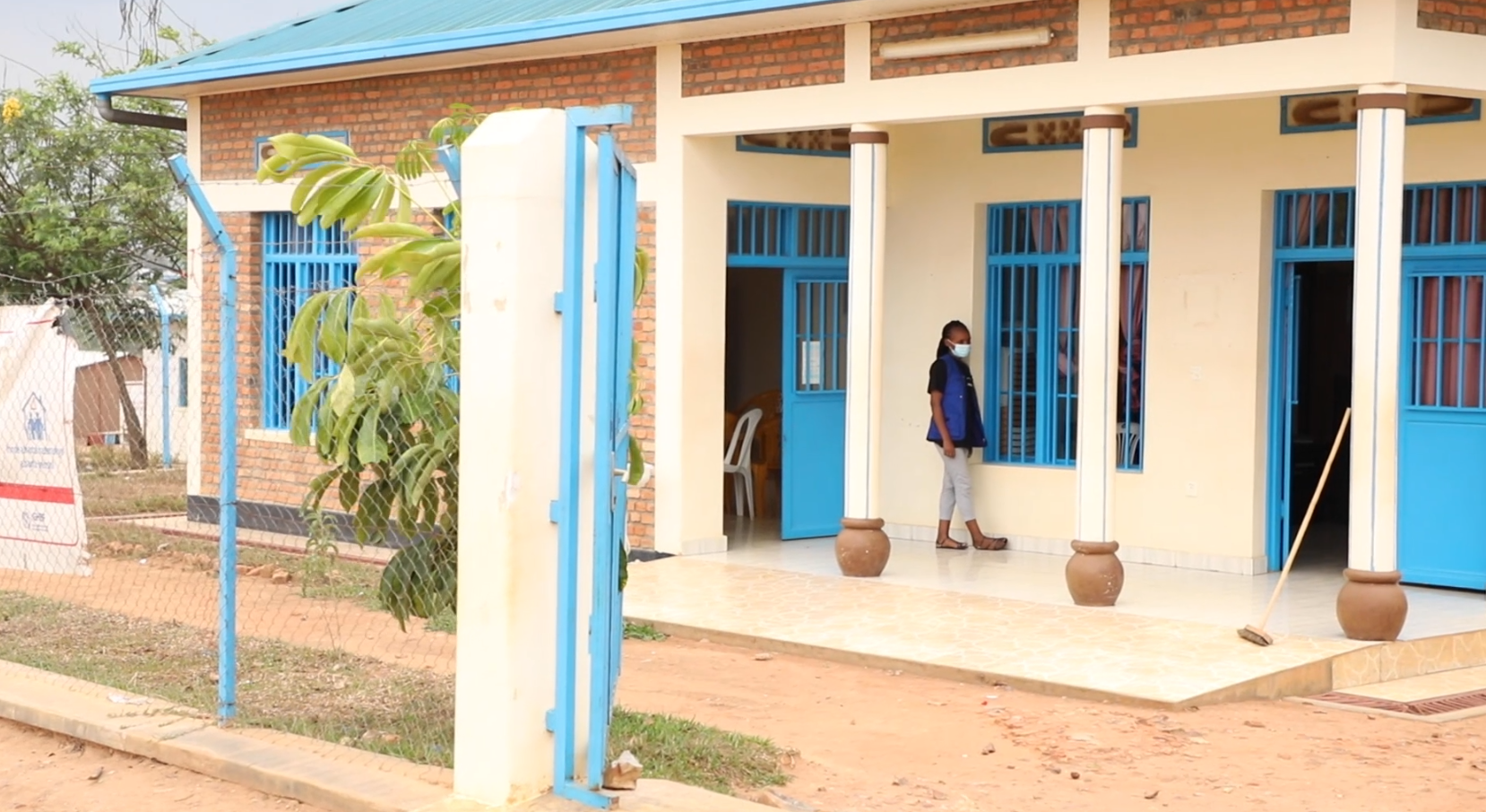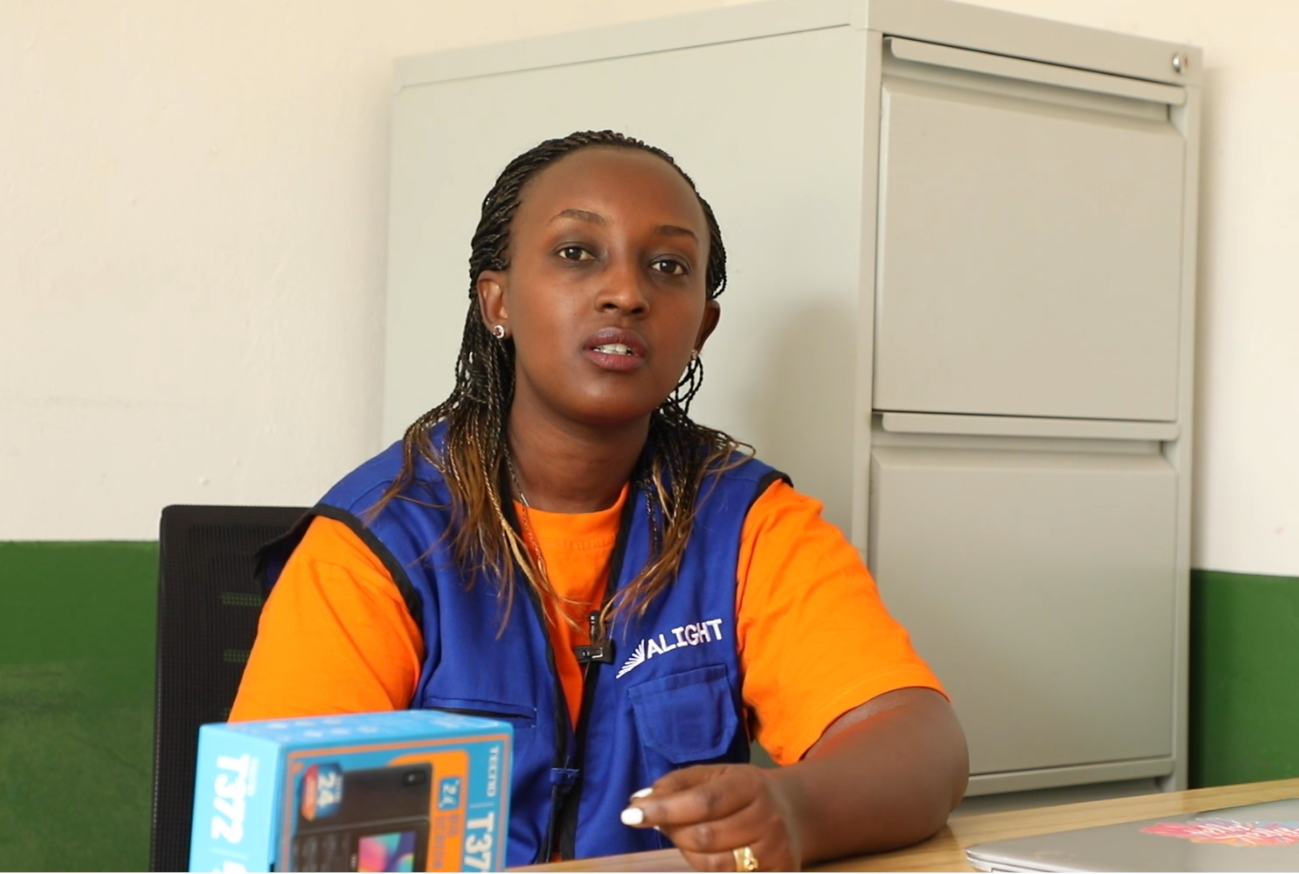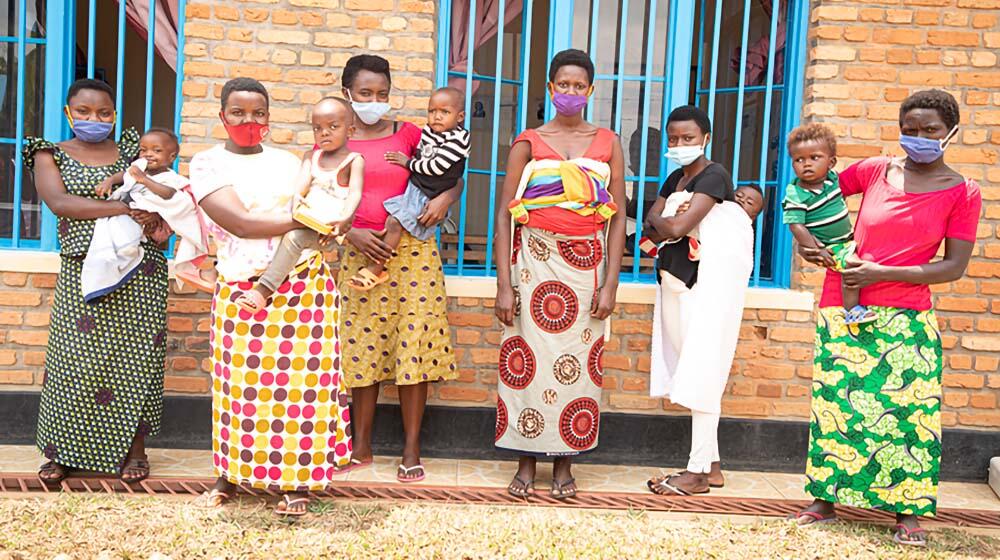Rwanda made great achievements on maternal health through increased improvements in emergency obstetric and neonatal care (EmONC), deliveries by skilled birth attendants (SBAs), and family planning (FP). This directly linked to the declines in maternal and newborn morbidity and mortality. Deliveries attended by a skilled provider have steadily increased over the last decade, with currently 93% of women giving birth in a health facility and the same percentage assisted by a skilled provider.
Since 2018, UNFPA & Government of Japan have been collaborating to reduce maternal & child mortality in humanitarian settings in Rwanda. The Government of Japan supports UNFPA to implement SRH & GBV lifesaving interventions in refugee camps.
Under the 2018 Japan Supplementary Project, UNFPA supported health system strengthening programs to ensure every pregnancy is wanted & every childbirth is safe. Various medical equipment have been procured to strengthen Maternal, Sexual and Reproductive Health, Gender Based Violence Prevention and Response in Mahama camp including an ambulance to ease the referral of complicated obstetric & GBV cases to the hospital.
“We are grateful that no mother or child has lost their lives in this health facility due to lack of medical equipment or lack of knowledge. Everyone is received and assisted. Even for the cases that need special assistance, we have been provided an ambulance by our partner UNFPA under this Japan funded project, we are now able to transfer those cases to the hospital on time” Said Mukandayisenga Gisele, a Midwife in Mahama Refugee Camp.

UNFPA under Japan funded project, provides an ambulance to assist Alight Mahama Health center to transfer those in need of assistance to the referral hospital
Access to Sexual and Reproductive Health (SRH) services and information is a basic human right. Based on the sustainable development goals (target 3.7), universal access to sexual and reproductive health services should be attained by 2030.Young people facing humanitarian crises are also at higher risk for mental health problems, which can further exacerbate poor SRH outcomes (BMJ, May,2020).
Inadequate SRH service provision has been linked with unintended pregnancies, complications related to unsafe abortions, gender-based violence, and increases in HIV and sexually transmitted infections (STIs), (Singh NS, Aryasinghe S, Smith J, et al, BMJ,2018).
Teenage pregnancy and early motherhood have far-reaching consequences, ranging from health complications for the young mother and her baby, to halting a girl’s education, including social cultural and economic consequences, such as discrimination, stigmatization, and low-income earning potential, which lead to a vicious cycle of poverty.
“Among the equipment we received under this project, we have Sexual and Reproductive Health information equipment for Adolescents and young people. This enable us to provide them with the SRH information and services they need to make informed decisions.” Said Dr. HAKUZWEYEZU Azarias, Medical Coordinator in Mahama Refugee Camp.
In 2018, UNFPA in partnership with Alight Rwanda, facilitated the installation of an anonymous hotline 4433, a 24-hour toll-free to respond to/prevent sexual and gender-based violence (SGBV) in Mahama refugee camp.
The goal of the SGBV hotline is to involve the camp community in the fight against sexual violence and other forms of violence committed against women and children, by ensuring early reporting of all the cases and to ensure that all forms of violence are ended by bringing in a platform that will enable the camp community to speak freely about the issues affecting them.
During the lockdown , the 4433 Hotline has become a much-needed tool that has helped in maintaining remote case management and following up on survivors. During that period, it helped the case workers in continuing to communicate with the survivors and monitor them and provide them with appropriate assistance.

Safe house to assist GBV victims and provide needed services to them. It was built by UNFPA in collaboration with Alight under Japan fund
“We have a toll free number through which information can be shared in a timely manner. We use it to report and share information about GBV cases. In Addition, refugee communities have been informed on how and when to use it, so even when we are not around in that moment, they can call and report a case at any time. It is easy and it is free.” Ndikumana Isaac, SGBV Community Activist in Mahama Refugee Camp
In Gihembe refugee camp, SGBV case workers were provided with mobile phones to continue deliver services to victims especially during the COVID 19 pandemic when they could not go on the field.
“During lockdown, we are not allowed to conduct home visits, so it was not easy to do follow up with the SGBV victims, but these phone allow us to continue deliver services, even when we cannot go on the field.” Mukabarisa Joseline, SGBV Case Worker in Gihembe refugee camp.

SGBV case workers were provided with mobile phones to continue deliver services to victims especially during the COVID 19 pandemic when they could not go on the field
UNFPA in partnership with ALIGHT, African Humanitarian Action, and Save the Children, will launch on the 30th, the 2020 Japan Supplementary Budget project as a continuation of the Government of Japan’s support to UNFPA. Entitled: Strengthening Maternal, Sexual and Reproductive Health, Gender Based Violence Prevention and Response in humanitarian settings in the context of COVID-19 pandemic” in six refugee camps in Rwanda, this new project aims at strengthening the capacity of health facilities from six refugee camps to deliver quality Maternal Health, Sexual and Reproductive Health, and Gender Based Violence(GBV) prevention and response services in the context of COVID-19.
In particular, the project support will allow to avail additional space for GBV cases managementace and equipment for quality provision of maternal health, sexual and reproductive health services while protecting women in reproductive health age using SRH services and the frontline health workers. The project will also support a move from paper based medical information management to electronic medical information management system.
“We deeply appreciate the UNFPA partnership and this great support from the people of Japan. Thanks to this project, health services in the camp have improved. We are sure that this new project will increase access to the maternal Health and SRH services by women and girls and reduce preventable maternal mortality and morbidity in the camps especially in this time of COVID 19 pandemic.” Iyakaremye Jack, SGBV Protection Officer at Alight, working in Mahama Camp
In loving memory of our beloved Dr. HAKUZWUWERA Azalias who passed away on 24th September 2021. May He Rest in Peace.


